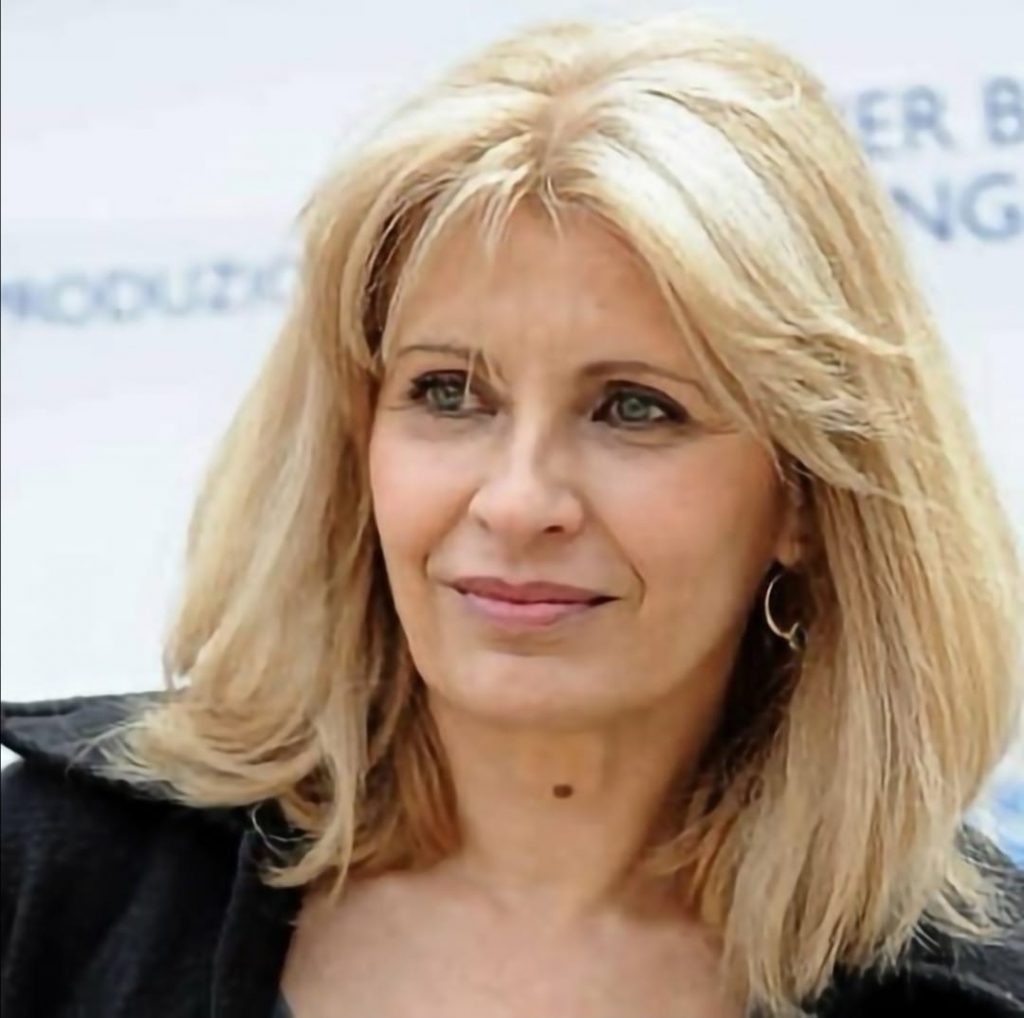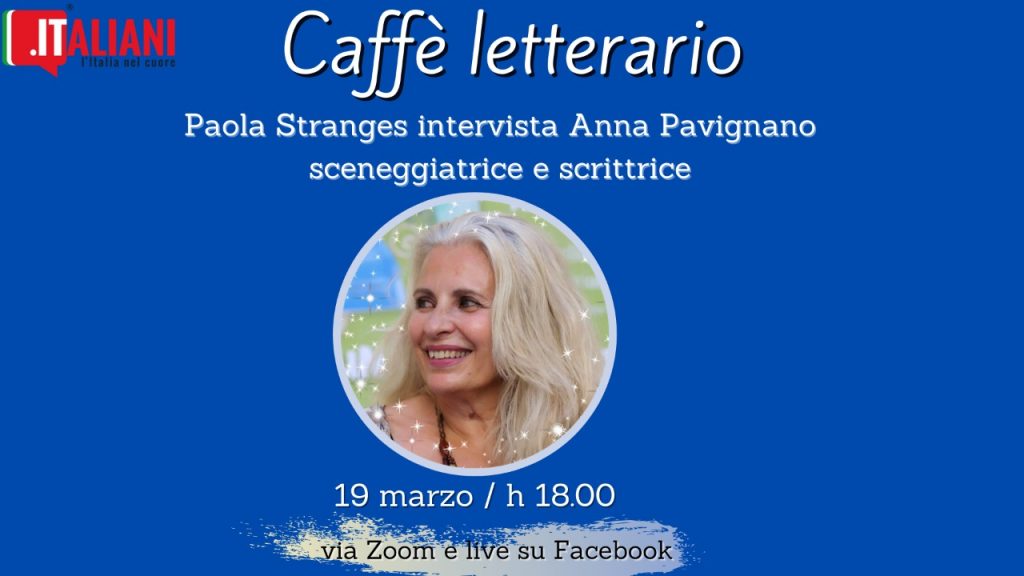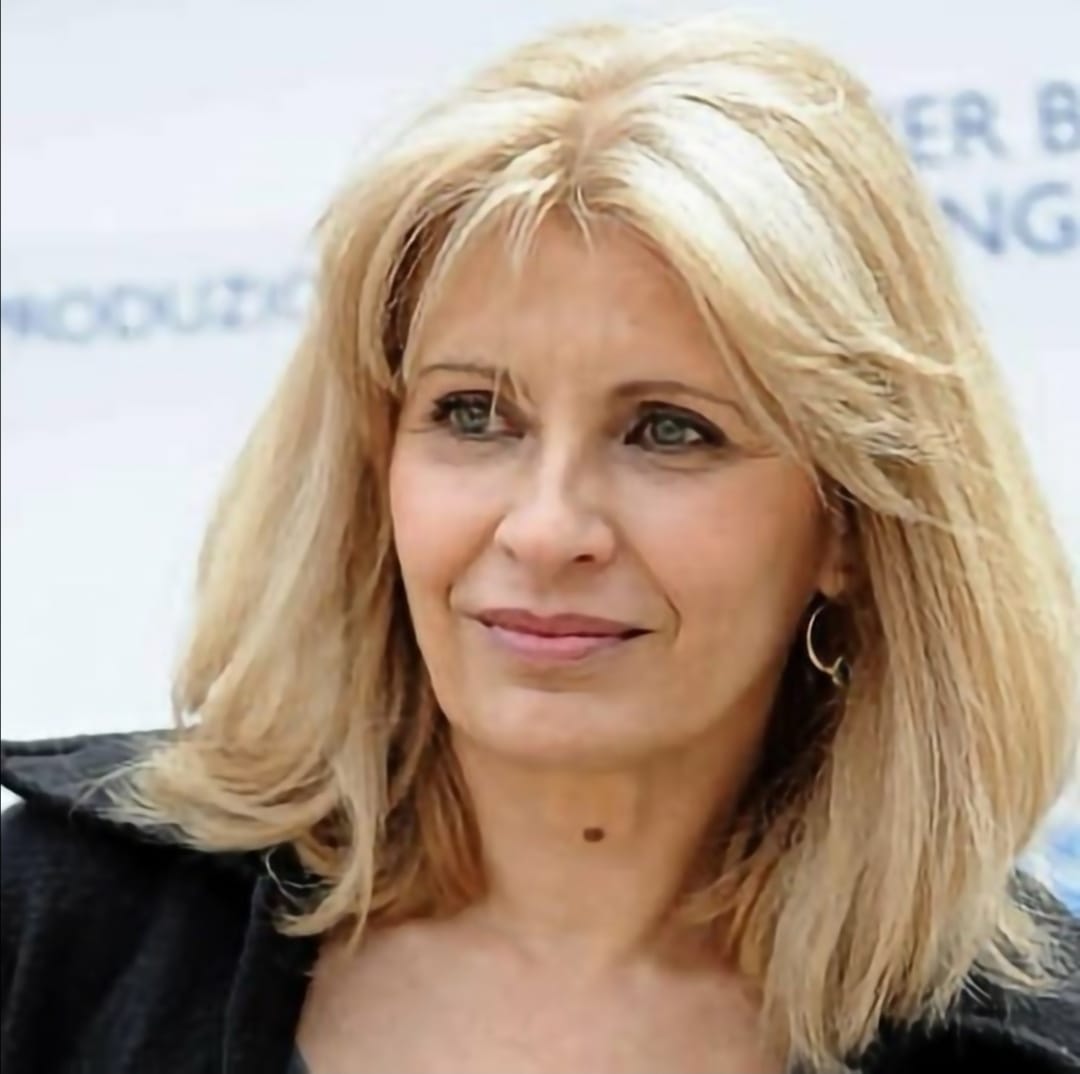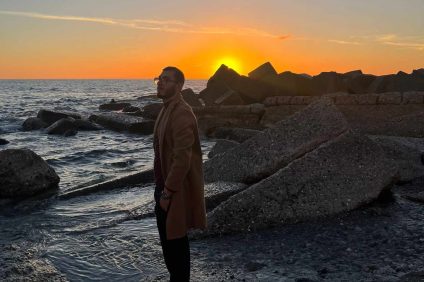The writer and screenwriter Anna Pavignano made us have fun and emozionare writing together with Massimo Troisi the screenplay of films that have made the history of Italian cinema.
Anna, you have been Massimo Troisi's life and work partner for a long time. How did you meet him?
We met in Turin which was the city where I lived and he worked. He was recording No stop however, when we met and dated for a while, he had not yet been successful so I met him as you know a normal guy who is not part of the entertainment world and this is something I like. Clearly then, the success that an actor can have is different from that of a screenwriter, so the limelight was all for him but, when we met we were naive and pure. I was appearing in this show that it was No stop a historical and innovative transmission. There were so many actors and extras, I was an extra with the idea of earning some money while I was studying and then this meeting happened and it certainly changed my life in many ways.

You have a long and brilliant career behind you, can you tell us what your path has been? How did you become a screenwriter?
You become a screenwriter and screenwriter in many ways. I think the key thing is to have a love for writing and also a passion for cinema. I love writing and I had a little practice too. Even though I was very young, I wrote on my own because I enjoyed doing it since I was a little girl and then, I became screenwriter a little by chance. Probably even if I hadn't met Massimo I would have gone on with the narrative then trying to publish and instead, there was this event that was precisely meeting him, sharing life with him and also his success, his life as an actor. . Then when there was the proposal to make a film, which did not come immediately, when there was this occasion for which the producer Mauro Berardi gave Massimo carte blanche, telling him to write the story he wanted, Massimo decided to write together with me because he had read the things I wrote. He liked the stories and so we started this adventure together and little by little we also learned technically to write better. Now reviewing I start again from three, after so many years, I judge him with more serenity and less severity.
40 years ago the legendary film Ricomincio da tre was released in Italian cinemas. The screenplay for the film was written by Massimo Troisi and Anna Pavignano. You want to tell us how the idea was born and how the script of a film still loved by the public developed?
We didn't have a clear and well-defined plan to make a film together though, maybe there was a desire. We were unable to make clear plans, however, we were able to shape our desires, our dreams, our ambitions. When there was something we liked, a situation, a joke, a thought, we said "if we were to make a film then we put it on”And therefore it was also a very funny dynamic because then it was a mix of everyday life with our projects, our dreams. So, when the proposal to make the film came, we tried to put together in a story, all these pieces of our experience, of our lives. Massimo came from Naples, from San Giorgio, and, he wanted to go away, he didn't want to run away, he didn't want to emigrate, he wanted to explore. For me there were aspects a little more stable, I was writing and studying psychology. Here we say that we started from us. At the time it seemed like a perhaps minimal film, it has also been said by critics, however, instead I believe that, seen after some time, only the impact is minimal but the contents are important and tell not only a generation but also subsequent generations.

Massimo Troisi was a reserved man, a bit lazy and you could tell from all his interviews. How did you experience the great success of your films?
Surely there was a bit of surprise because when we wrote the first film already making a film and bringing it to the end seemed like a big milestone. It is clear that somehow success, at least at that stage, has alienated us. Massimo was always around, of course he was the center of attention and therefore, somehow I experienced success as something that only partially belonged to me and I looked at it a little from the outside. In the relationship with Massimo, with respect to success, there have been various phases because he has fallen into it for a period. He went to get the prizes, he was very happy, then, afterwards, he got tired but not physically tired of the hammering, of being always at the center of attention, he tended to have periods of greater reflection, of greater closure that were not negative, it was a need for his spaces and I was able to share these spaces more than the stage.
You wrote, among other things, together with Massimo Troisi, a film that was nominated for an Oscar. I mean The postman with Massimo Troisi and Maria Grazia Cucinotta. Do you want to tell our followers the plot of The postman?
The film is based on the book The postman by Neruda by Antonio Skármeta. There have been some pretty big changes from the book to the film and by the way it was also a very interesting experience to do the adaptation among other things, I really like making the adaptations, I have done many. It is the story of Neruda arriving on an island in Italy. Actually when he came to Italy in 1952 he lived in Capri but we had to invent an island that doesn't exist because we had to keep the atmosphere of black island that is, the one that was in the book and that was not that of Capri in '52. So we made this little deserted island, a little ruined where there is this postman who has only one customer to take the letters to, which is Neruda. The postman's path is that of a boy who is very young in the book, while in the film he is Troisi's age. He is a young man who leaves, not knowing what he wants but knowing what he doesn't want. He does not want to do what his father asks him, he does not want to be a fisherman, he does not want to be part of a life with rules that are those that are presented to him in this little world of his and, through the meeting with Neruda he finds what he was looking for. . He finds poetry and culture among a mental spiritual dimension that he did not know he had but which, in reality, was pressing within himself; there is the whole relationship between them and there is also the painful ending.

You are a screenwriter and writer. Which role do you feel most yours in this moment of your life?
Both, I like to jump from one to the other. Maybe fiction writing takes me a little longer because I found myself starting late, precisely because I followed the things that happened to me so I started and continued writing screenplays. After many years, Massimo was already gone, I started writing, therefore, it is as if I still had many things to write. I also enjoy writing for the cinema even if it is very different because you are the master of a book while the screenplay is a story that you write and that you must also make available to the work of others. It is still very fascinating to write something when it is good to see it on screen.
You have thought and created a beautiful and poetic way to tell Troisi. You did it with a book called I get up late tomorrow, do you want to talk about it?
This is a book about Massimo Troisi and it talks about him in a particular way because it was written when Massimo was gone. It was a way to make him come back, I imagined that Massimo was not dead but that he had retired to a secret location and then returned. I thought about what his return could be, our meeting, what we would do and what we would tell each other, the emotions we would feel. Through this, I also told about the real biographical aspects, however, I didn't feel like writing a biography on Massimo at the time, it seemed to me that it was still too early. It seemed to me that it was important to tell the feelings, the emotions that being with him created and give back to those who read this book what they thought and felt in attending it. I also did it by taking, at times, invention licenses.
Would you like to share with us a nice and curious behind-the-scenes look at one of his films?
There is what I also tell in the book, that of Massimiliano and Ugo which is a joke at the end of I start again from three. That is a situation that has really occurred, one of the many things we have said "we mark this one and then we use it". It is a situation that occurred on the beach in Sardinia. We were on vacation in Santa Teresa di Gallura and this mother was there, it was June so the beach was deserted, there was me, Massimo and a mother with a child. This mother was very tired and the child kept jumping into the water; his mother called him to tell him not to jump into the water and called him "Massimiliano... Massimiliano". She did it very slowly also because she was tired and it was also very hot. So Massimo came up with this joke "If you call a child Massimiliano, the child before you finish calling him is already in the water if he was called Ugo, maybe he would stop immediately". And therefore, in I start again from three where she is expecting a baby at the end of the film, what better joke than this! Many Massimiliano Neapolitans also write to me saying that their life has been marked by this joke. Then, everyone has their own version because maybe it could have happened that Massimo, going to the barber shop or talking to a friend, repeated it. If Massimo had some joke in mind he used it, maybe he tried it a little, to see if it made others laugh besides me.
Thanks Anna for this interview





